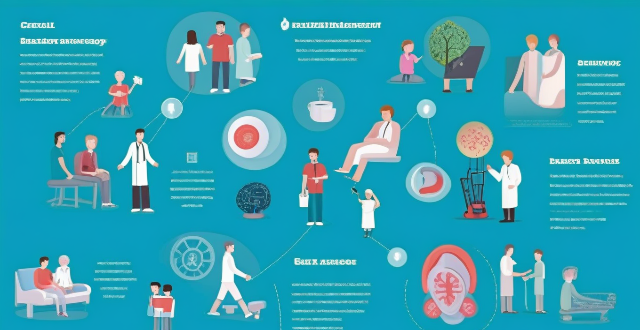Technology plays a crucial role in improving global health outcomes through advanced medical equipment, digital health solutions, and more. It has revolutionized diagnosis, treatment, disease surveillance, prevention, accessibility, affordability of healthcare services, research and development initiatives, and health literacy and education. Technology's impact on global health will continue to grow positively as it evolves at a rapid pace.

The Role of Technology in Improving Global Health Outcomes
Technology has become an integral part of modern healthcare, playing a crucial role in improving global health outcomes. From advanced medical equipment to digital health solutions, technology is transforming the way we diagnose, treat, and manage diseases. In this article, we will explore the various ways technology is contributing to better health outcomes worldwide.
1. Improved Diagnosis and Treatment
a. Medical Imaging
Advancements in medical imaging technology have revolutionized the way doctors diagnose and treat diseases. High-resolution scans, such as MRI and CT scans, provide detailed images of internal organs, allowing physicians to detect abnormalities and diagnose conditions more accurately.
b. Telemedicine
Telemedicine enables remote patient monitoring and consultation, particularly beneficial for individuals living in rural or underserved areas. Patients can connect with healthcare professionals via video conferencing, reducing travel time and costs while ensuring timely access to medical care.
2. Enhanced Disease Surveillance and Prevention
a. Wearable Devices
Wearable devices, like fitness trackers and smartwatches, collect data on physical activity, heart rate, and sleep patterns. This information helps individuals monitor their health and identify potential health issues early on.
b. mHealth Apps
Mobile health (mHealth) apps provide users with tools to manage their health, including medication reminders, symptom tracking, and health education resources. These apps also offer platforms for patients to share their health data with healthcare providers, facilitating more personalized treatment plans.
3. Increased Accessibility and Affordability of Healthcare
a. E-prescriptions
Electronic prescriptions simplify the process of filling medications by eliminating the need for paper prescriptions. This not only saves time but also reduces the risk of prescription errors and fraud.
b. Telepharmacy
Telepharmacy allows patients to receive medications delivered directly to their homes, increasing accessibility and convenience for those unable to visit a pharmacy in person.
4. Advances in Research and Development
a. Genomics and Personalized Medicine
Genomics research has led to significant advancements in understanding genetic factors contributing to diseases. This knowledge enables the development of targeted therapies tailored to individual patients' genetic profiles, resulting in more effective treatments with fewer side effects.
b. Artificial Intelligence and Machine Learning
AI and machine learning algorithms analyze vast amounts of medical data, identifying patterns and predicting disease outcomes. These technologies aid in developing new treatments and improving existing ones by providing insights into disease progression and response to therapy.
5. Promoting Health Literacy and Education
a. Online Health Resources
Online health resources, such as websites and social media platforms, offer accessible health information to the public. These resources help raise awareness about various health issues and promote healthy behaviors among individuals worldwide.
b. Virtual Reality Training
Virtual reality (VR) training programs simulate real-life scenarios for medical professionals, enhancing their skills and preparedness for complex procedures. This technology also provides opportunities for distance learning, enabling healthcare workers in remote areas to access specialized training without traveling long distances.
In conclusion, technology plays a vital role in improving global health outcomes by enhancing diagnosis and treatment methods, disease surveillance and prevention efforts, increasing accessibility and affordability of healthcare services, advancing research and development initiatives, and promoting health literacy and education among populations worldwide. As technology continues to evolve at a rapid pace, its impact on global health will undoubtedly continue to grow positively.